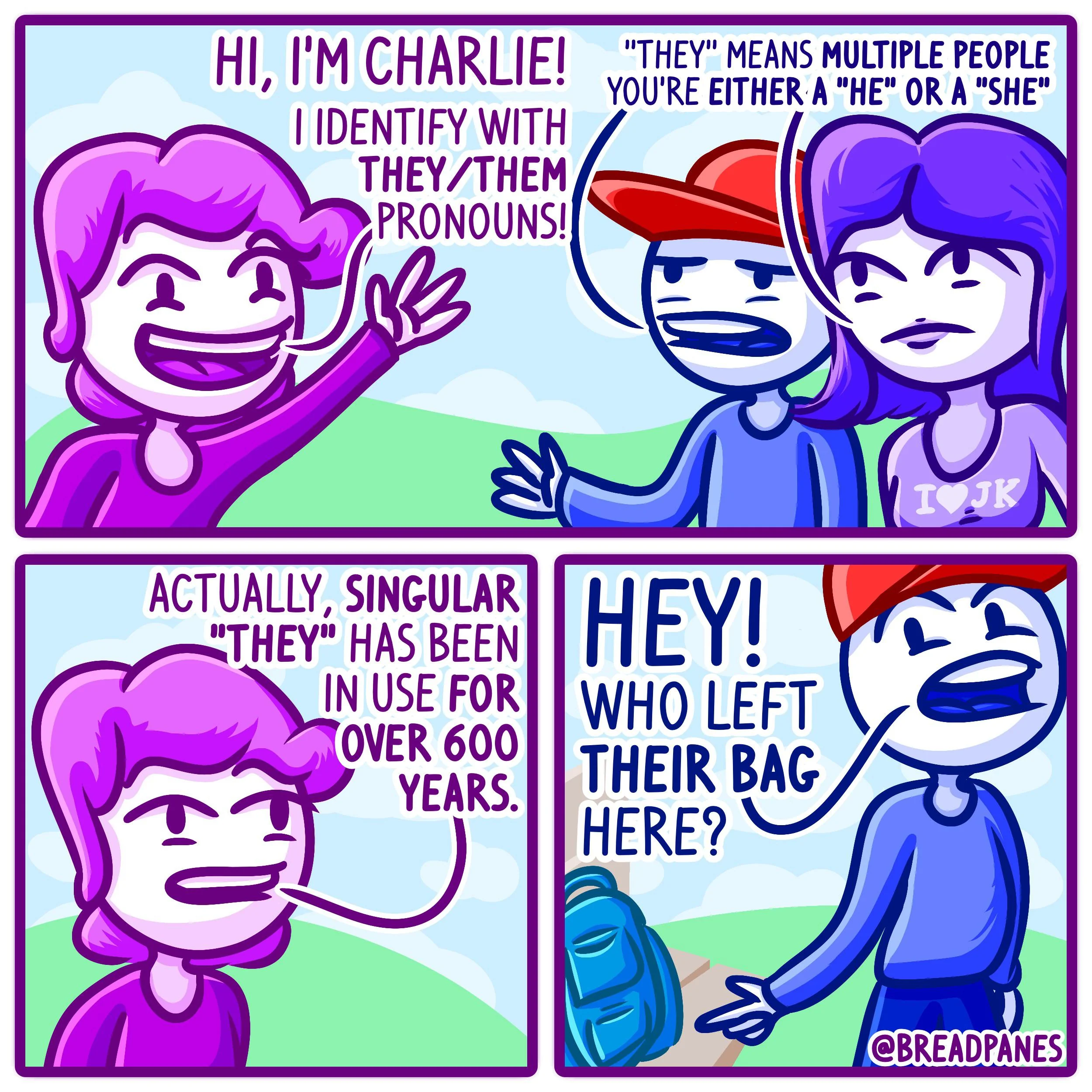this post was submitted on 12 Dec 2024
496 points (80.7% liked)
Comic Strips
13823 readers
3461 users here now
Comic Strips is a community for those who love comic stories.
The rules are simple:
- The post can be a single image, an image gallery, or a link to a specific comic hosted on another site (the author's website, for instance).
- The comic must be a complete story.
- If it is an external link, it must be to a specific story, not to the root of the site.
- You may post comics from others or your own.
- If you are posting a comic of your own, a maximum of one per week is allowed (I know, your comics are great, but this rule helps avoid spam).
- The comic can be in any language, but if it's not in English, OP must include an English translation in the post's 'body' field (note: you don't need to select a specific language when posting a comic).
- Politeness.
- Adult content is not allowed. This community aims to be fun for people of all ages.
Web of links
- [email protected]: "I use Arch btw"
- [email protected]: memes (you don't say!)
founded 2 years ago
MODERATORS
you are viewing a single comment's thread
view the rest of the comments
view the rest of the comments

It's equally unclear if both Dan and Steve use "he", it's just the the options are "Dan / Steve" instead of "Dan / Dan and Steve"
I don't understand what you're trying to express. I can't make sense of what you've written.
If the Dan in your example used he/him pronouns and so did Steve, then it is equally unclear
There's no way to know whether the "he" is Dan or Steve. The they/them pronoun isn't the problem in your example, the structure of the sentence is.
Your example sentence is always ambiguous because there is only one sense of the word "he" but two possible objects. My example sentence is always ambiguous because there are two senses of the word "they". The two situations are completely different linguistic issues.
Your example is of a poor speaker. My example is of a poor pronoun choice.
I disagree entirely.
Dan (or Steve, or both) is the subject of this sentence, not the object.
In both sentences, the pronoun used has two possible meanings in that context. That the two "they" definitions might be listed separately in a dictionary does not seem very important. It wouldn't even need to be separate, as "third person pronoun, indeterminate number and gender" would accurately cover both cases.
What would be a non-ambiguous version of the sentence, in your opinion?
You may be right about that (I'm not sure) but it doesn't effect the argument.
What are the two meanings (senses) of the word "he" in your sentence? It only seems to have one meaning from what I can tell.
As I understand it, in both sentences there are two subjects (using your terminology) but in my sentence, the pronoun has more than one sense whereas in your sentence the pronoun has only one sense. The multiple senses of the pronoun in my sentence is the cause of the problem, not the multiple subjects.
In my sentence it's also possible that there is the same ambiguity of subjects as in yours but that is not a given because it depends on which of the senses of the pronoun is intended. And that isn't clear. Which is the problem.
Dan or Steve is what I mean here — meanings within the context of their usage, not in an isolated sense. These meanings would both be described as "third person singular male pronoun" in a dictionary, but by the nature of a pronoun the whole point is for it to refer to something you've already talked about in context
We can test for this. If there's only one subject, Dan, then the sentence becomes:
No ambiguity there, it can only mean Dan. Similarly, with a single subject that consists of multiple people:
Exact same thing, no ambiguity. So we can use "they" in both senses and it's totally fine so long as there's only one subject. The ambiguity comes about when there are two possibilities already mentioned that the pronoun could potentially refer to — just like if Dan and Steve are both "he".
Again, we're talking about different linguistic issues, which I'll demonstrate below. I see now that my example wasn't a good example because it conflates a consequence of the problem with the problem itself.
There are two different ambiguities. You're talking about ambiguity over the subject whereas I'm talking about ambiguity over the sense of the pronoun.
"I was with Dan (they/them) the other day. They hadn't brought a poster they needed and went back to the car to get it."
No ambiguity over sense of "they". No ambiguity over subject.
"I was with the newlyweds the other day. They hadn't brought a poster they needed and went back to the car to get it."
No ambiguity over sense of "they". No ambiguity over subject.
"I was with Dan (he/him) and Steve (he/him) the other day. He hadn't brought a poster he needed and went back to the car to get it."
No ambiguity over sense of "he". Ambiguity over subject.
"I was with Dan (they/them) and Steve the other day. They hadn't brought a poster they needed and went back to the car to get it."
Ambiguity over sense of "they". Ambiguity over subject.
The ambiguity over the sense of the pronoun is the confusion. That's the problem. The ambiguity over the subject is a problem but not the problem I meant.